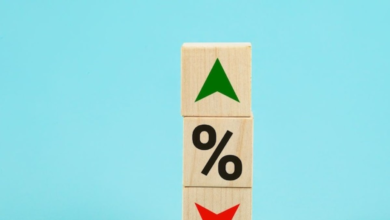3 hottest trends impacting FinTech trading in 2024

The digitization of real world assets (RWAs) is becoming the pioneer of FinTech in 2024. CoinGecko reports that commodity-backed tokens have hit a $1.1 billion market cap, with gold as the most popular commodity. Tokenized treasury products have also grown 782 percent in 2023 alone to over $931 million in value. In 2023, the total value locked (TVL) of on-chain RWAs doubled from the previous year to $2.5 billion.
These trends, catalyzed by advancements in artificial intelligence (AI), and continued growth of decentralized finance (DeFi) services signal a fundamental shift in market accessibility and global liquidity. Blockchain startups that focus on RWA bridge the gap between traditional finance and opportunities with blockchain-powered markets.
In this article, we will look into three trends that will make a big impact on FinTech trading this year moving forward.
Trend 1: AI-powered trading
AI and machine learning (ML) are no longer just buzzwords in FinTech. These are already integral to the industry. AI-powered algorithms now process massive data sets at lightning speed, and these identify patterns and insights that would otherwise escape traditional human insight and analysis.
This trend includes several key developments.
For example, algorithmic trading uses AI to carry out trades at the best times and prices, capturing brief market opportunities that human traders can’t track. Additionally, AI performs sentiment analysis, considering current events and real-world data to predict trends before they develop. Sophisticated risk models can also empower traders to make better-informed decisions, thus reducing risk.
Machine-learning is also able to personalize investment and trading strategies. This can be seen with the trend in robo advisory services, which can cater to a wide range of clientele from casual traders to high-wealth individuals in need of portfolio management.
A tech-driven approach can do wonders for finance. “It would enrich users’ banking experience and allow them to seamlessly interact with an endless array of financial services, like a plug-and-play model, with little friction,” Vertex Ventures Southeast Asia and India partner Genping Lui wrote on TNGlobal. “In this new paradigm, key services such as deposit-taking service, asset-custodian, insurance, lending services, risk management, and the offer of securities, etc. will be redistributed between different tech layers and service providers.”
Trend 2: Unlocking global liquidity with tokenized RWAs
The tokenization of RWAs blurs the lines between traditional and blockchain-based markets. Earlier, we saw this come to fruition with stablecoins pegged to fiat currencies. Now, tokenized commodities such as gold and equities are becoming tradable across decentralized exchanges (DEXs).
This trend offers advantages like global accessibility, wherein RWAs can be traded 24/7 by anyone online, removing geographical barriers and bypassing many of the limitations of traditional brokerages. It can involve any commodity, from traditional ones like oil, wheat, and precious metals, to tech-driven funds like Bitcoin and Ethereum.
Tokenization can also enhance liquidity through fractional ownership. This means smaller-scale or individual investors can trade in assets that only large institutional investors could access before.
Transparency with public blockchains will also enhance trust in the market by providing a verifiable record of transactions and asset ownership. Meanwhile, the tokenization of RWAs makes blockchain-based trading more attractive for both traditional and tech-savvy traders.
“Institutions will come when more real world assets can be traded trustlessly on-chain with perpetual swaps, futures, and option contracts,” says Jonathan Caras, Head of Communications of Levana, a fully-collateralized perpetual swaps exchange. “Platforms like Levana offer a soft landing for traditional investors because they come to our platform and start trading the assets they already know.”
The vision with RWAs is to democratize access to trade opportunities through FinTech solutions. “Levana envisions a future where traders of any technical background can come and easily trade a variety of global assets such as foreign exchange, commodities, crypto assets, and crypto derivatives,” Caras adds.
Levana enhances its siloed liquidity markets by allowing up to 30x leverage with low fees, ensuring each market operates efficiently and independently. Furthermore, the concept of “well-fundedness” guarantees that all open trades within these siloed markets are fully backed by adequate collateral, maintaining the overall stability and transparency of the platform.
Trend 3: The evolution of DeFi
DeFi expands the possibilities for traders seeking access to innovative financial instruments. These solutions leverage smart contracts to facilitate financial services without the need for traditional intermediaries.
With permissionless protocols, DeFi solutions enable access to anyone with a compatible crypto wallet, which creates a more inclusive trading environment. Traders also maintain full autonomy and control over their assets, unlike custodial platforms where third parties hold direct access to the trading and assets.
DeFi solutions continue to evolve, offering new types of products and structures, such as lending/borrowing protocols and yield-farming. Examples include lending crypto assets for interest or borrowing using crypto as collateral. DEXs allow users to trade cryptocurrencies directly without the need for a centralized exchange.
The growing importance of RWAs will also play an epic role in DeFi growth. As Galaxy states: “As adoption of RWAs grows and token development/composability improves, more DeFi protocols are likely to open themselves up to accepting RWA tokens from end-users to fulfill utility such as issuing stablecoins and acquiring leverage.”
The takeaway
2024 will see the reshaping of FinTech trading with the innovation and growth in AI-driven solutions, RWA tokenization, and DeFi use cases. AI empowers traders with faster and more informed data-driven decision-making. RWAs will unlock global markets for traders of all sizes. DeFi is already expanding the toolkit of available financial instruments and modalities that give traders better autonomy and power.
What used to be just access to mega-corporations and leaders of unstoppable financial institutions can now be accessible to everybody. This pivotal year could mark the dawn of a new era in finance, as these advancements catalyze a shift towards a fully inclusive and technologically empowered trading environment.
TNGlobal INSIDER publishes contributions relevant to entrepreneurship and innovation. You may submit your own original or published contributions subject to editorial discretion.
Image credit: Unsplash
Understanding the impact of blockchain technology on sports gaming



